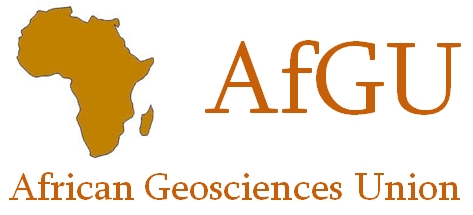In two weeks many of the worlds leading scientists (including a CSAGer) will be descending on northeast Austria to discuss the latest in geosciences research at the European Geosciences Union (EGU) annual meeting. During the lunch break yesterday, I therefore asked colleagues a question which was met with a polite trickle of laughter. “Is there an African Geosciences Union?” I inquired. Now I think I knew the answer to this question (which is no by the way) before I asked it but I was, and remain, curious as to how such an institution might emulate the success of the aforementioned EGU and its American cousin, the American Geophysical Union (AGU). I realise there is probably a difference between the disciplines of geoscience and geophyics but, at least in relation to AGU and EGU, climate science seems to feature prominently in both so lets leave that discussion there for the time being.
Utter the three letter acronyms AGU or EGU in a natural sciences university department and thoughts will instantly turn to the annual conferences held in San Francisco and Vienna respectively. I have attended the EGU meeting twice but have not yet had the pleasure of attending an AGU meeting. Presumably it is much the same; thousands of scientists running from room to room sitting through countless powerpoint presentations only to find that the talk they had most been looking forward to is no longer on the agenda. Yet these mega-conferences provide arguably one of the best forums to engage with like-minded, and not-so-like-minded, scientists from research institutions around the world. Naturally, as the union names suggest, EGU is dominated by scientists from Europe and AGU is dominated by scientists from North America. Although Europe and America have the largest share of natural scientists, in order to build science research capacity elsewhere in the world, specifically in Africa, surely it makes sense to be thinking about how best to develop these sorts of institutions and networks of scientists.
In the past decade, the Asia Oceania Geosciences Society (AOGS) has been established to bring together researchers in Asia and Oceania to emulate EGU and AGU. Their 9th annual meeting will be taking place in August at the Resorts World Sentosa in Singapore. AOGS recognise their role in enabling scientists within Asia and Oceania to publish in respected international journals and partner with other geophysical and geosciences unions. In addition, many individual nations have established science networks and institutional bodies. In South Africa, we have the South African Geophysical Association (SAGA). There also exists an International Union of Geodesy and Geophysics (IUGG) and indeed a Global Geoscience Initiative has been advocated but currently there is nothing on the table (to my knowledge) for an African Geosciences Union (AfGU…as AGU has already been taken).
The mission statement of the EGU is “dedicated to the pursuit of excellence in the geosciences and the planetary and space sciences for the benefit of humanity”. Similarly, the mission of the AOGS is to “promote geophysical science for the benefit of humanity in Asia and Oceania”. It is interesting to note that humans are singled out as the sole beneficiary of these unions. Perhaps an African equivalent might want to go further and include ecosystems and other species as target beneficiaries. In any case, the objectives of the AfGU (I include my own primitive design for a logo for some visual stimulation) could include the following components:

To provide a forum for scientists and researchers, primarily from African science institutions, to share research output.
To develop a network of members to increase collaboration between African research centres.
To enable and encourage African researchers to publish in leading international science journals.
Naturally, many issues would need serious consideration and I certainly don’t want to underestimate the political, economic and logistical barriers in establishing such an institution. At the very least, one would need to think carefully about how to structure the organisation, who would be selected to chair meetings/conferences and crucially how the union would be funded. Details of where an annual AfGU conference might take place would, presumably, be a secondary concern. Lessons could undoubtedly be learned from the AOGS experience and other similar initiatives but building a united African scientific institution is unlikely to be a straightforward process. AfGU would (at least initially) be relatively small in comparison to its European and American counterparts. Yet for a continent with over one billion people, many of whom would benefit from an increasing science presence in Africa, is it timely or indeed even appropriate to consider the development of such an institution? It wouldn’t surprise me if there have been high-level talks about the formation of AfGU (or an equivalent) so if anyone has access to the “higher-level” it would be interesting to hear from you.
Perhaps the African Geosciences Society would be a more suitable name, if only to allow the acronym AGS to be used in order to differentiate it from the AGU. Of course, the AGS would then have to compete for Google search space with the Adventure Game Studio, the American Geriatrics Society and the illustrious American Goat Society!